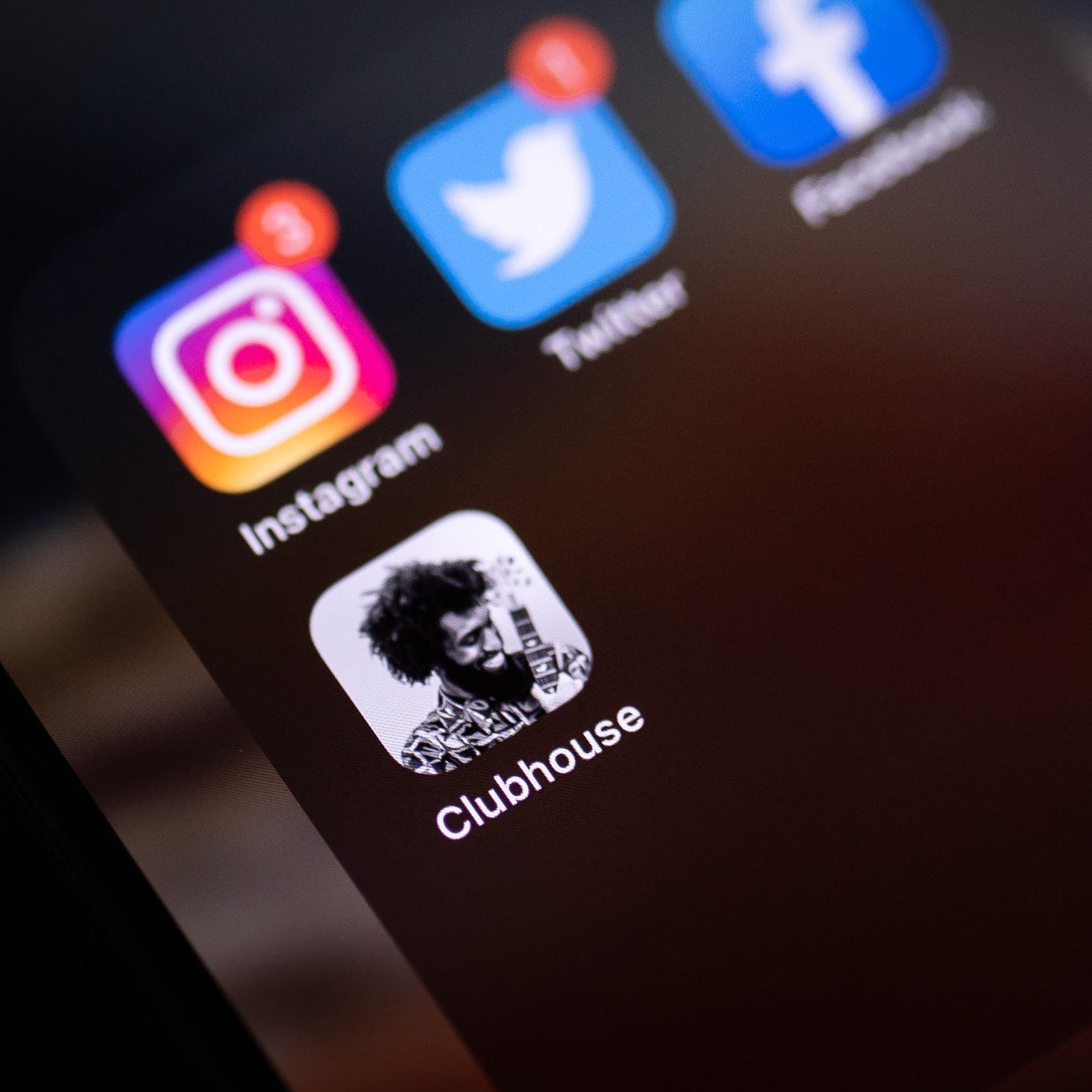

The situation prior to 2021 looked like this: Radio is unbrokenly popular and podcasts have been gaining strongly for years. Against the supposed superiority of the visual, listening remains present. But the hype triggered by the Clubhouse app came with vehemence.
In the app’s pop-up audio chat rooms, politicians, celebrities and opinion makers meet with interested parties of all stripes – and, as professional as they may act, they are suddenly much more private, removed from the ritualised TV discussion rounds they have trained themselves to for decades. Perhaps, some media analysed, Corona was the app’s accelerator because it brought back into our lives the spontaneity that contact restrictions had eliminated. Politicians, too, are talking more openly. And Bodo Ramelow from the far-left „Die Linke“ provided a frightening – and telling – example of how this can backfire when he called the German Chancellor the belittling “Merkelchen”. A medium that provides such insights is truly new. And the gaffe is good evidence that not every speaker is the right representative for a brand, party or cause.
But it is also proof that Clubhouse, for all its informal and authentic communication without “masks”, remains a public space. Although the T&Cs forbid recordings and their distribution, transcripts and audio recordings have surfaced.
Where does the app come from?
Paul Davison and Rohan Seth, ex-Pinterest and Google employees, are the brains behind Clubhouse. So they are experts in their field, but still creative enough to do things differently. Their innovation is disruptive not only in its design (no pictures, no comments, no likes), but above all in the length of time its users spend on the site: initially, users surveyed said they spent several hours a day listening to Clubhouse.
So the app is the new place to be, because it brings a little improvisation into communication, alongside proximity and genuine interaction. And: There is an important difference to Facebook and Insta, where users can unleash a shitstorm after a post. Here, anyone can have their say – but unlike a written comment, it is not left unchallenged, but can be countered with arguments; those who rant are sometimes deprived of their right to speak. Rooms that are uninteresting or uncooperative are punished by being ignored – according to the motto: “Suppose they gave a troll – and nobody came“. The immediacy of interaction is also new – when do you ever ask a member of parliament a question yourself?
What does Clubhouse bring to PR?
As an agency, our attention at ad publica quickly turned to another perspective: How can we use Clubhouse outside our private sphere? Can Clubhouse be used for public relations? It is logical that politicians and visionaries as well as company founders would have an interest in publicity and a corresponding influx of listeners. But is there a niche for Clubhouse in the marketing mix for many? That was the question we quickly asked ourselves. The answer is: yes, there is. But it takes a strategy to make the Clubhouse presence successful.
We have already successfully designed a Clubhouse strategy as part of the marketing mix for a client. Of course, each case is individual, but we can say this much about the first launch:
ECCO Germany | ad publica’s Chief Digital Officer Jan-Philip Thie: “A good communication strategy also includes selection – you cannot and should not follow every hype. But at Clubhouse there is an incredible amount of potential for publicity about personalities. In Germany, there is a tradition of restraint in this area – the majority of CEOs are still not to be found in social media. But here they could find the framework in which they can make themselves and their ideals, goals and ideas perfectly visible in interaction with fellow campaigners and sparring partners.”
Access to the ECCO Global Communications Network is simple. Contact information for a specific geography is available on the agency overview pages accessed here or contact the ECCO Global Communications office via email info@ecco-network.com.